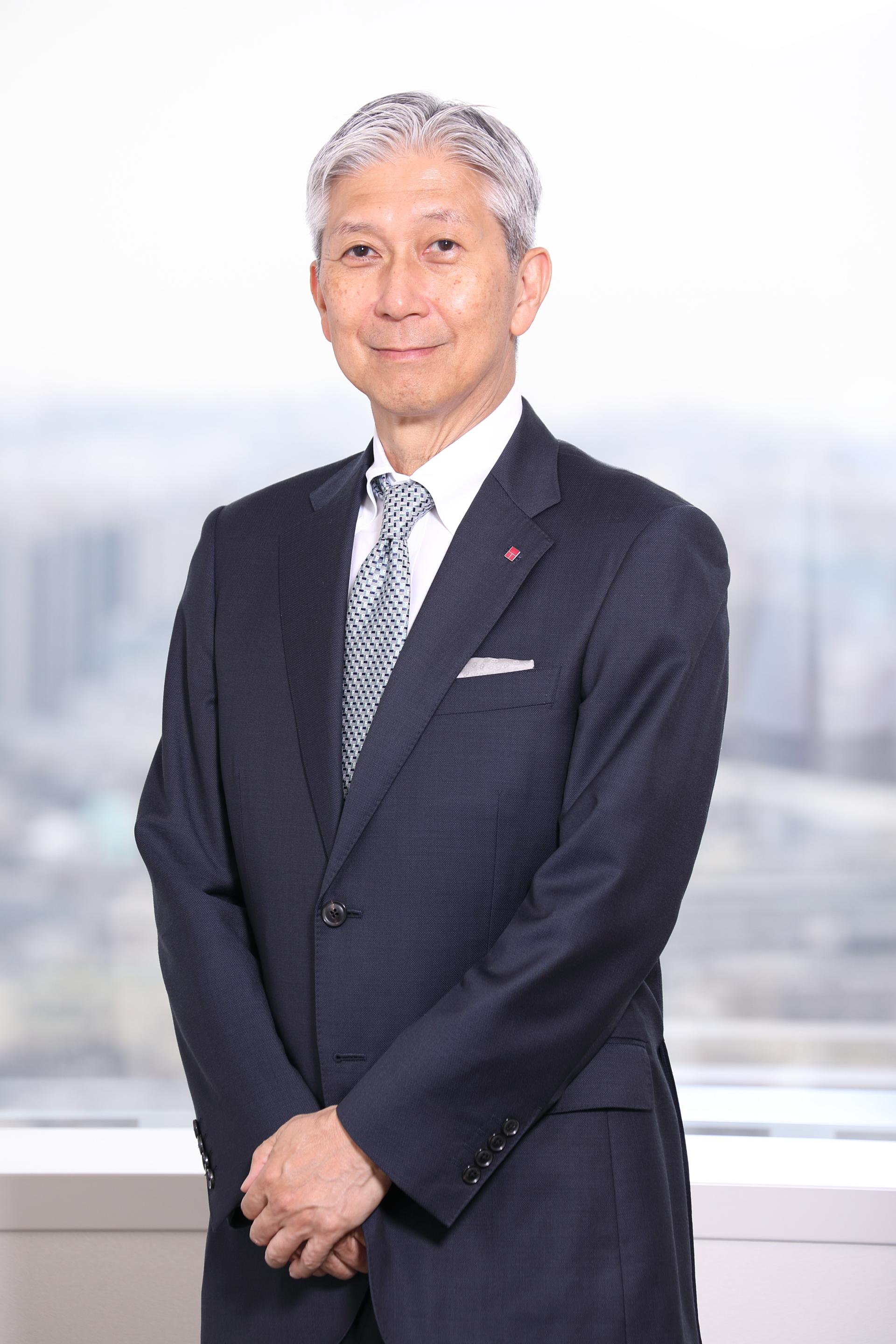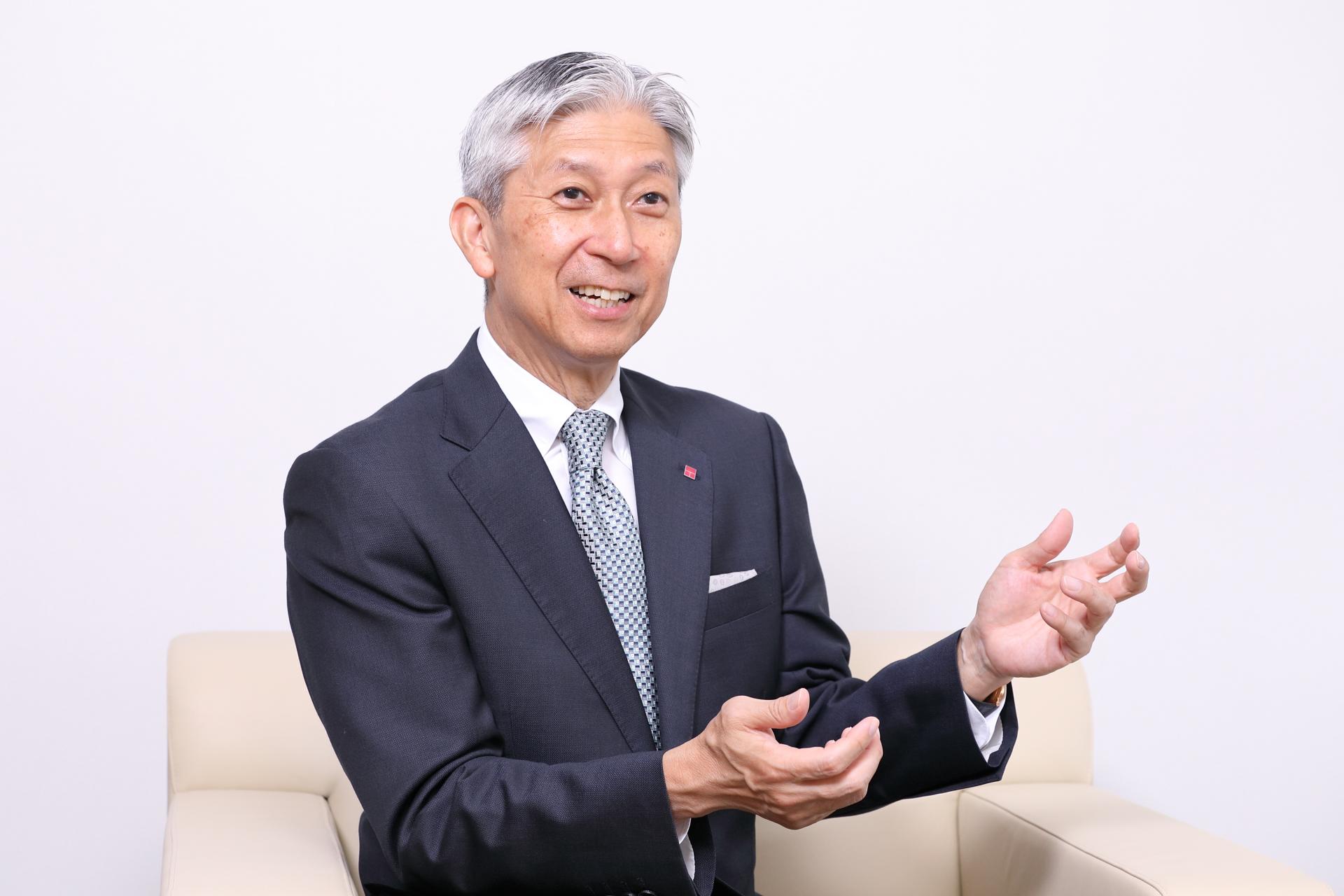
Sustainability at Takasago
Tatsuya Yamagata
Senior Vice President, General Manager of GIHQ (Sustainability, Global)
Under the New Global Plan-2 (FY2024–FY2026), the Takasago Group has positioned Sustainable Management as a core pillar of its corporate strategy, aiming both to address pressing social issues and to enhance long-term corporate value. I am pleased to present key achievements from the first year of NGP-2.
Climate Change Response
Our Journey and Future Direction:
We have long advanced both climate change adaptation and mitigation in alignment with international frameworks. In 2020, we disclosed climate-related information in line with the TCFD recommendations, and in 2021, obtained Science Based Targets (SBT) certification. For Scopes 1 and 2, we have introduced renewable energy, promoted energy-efficiency initiatives, and established systems for Life Cycle Assessment (LCA) calculation. For Scope 3, we have focused on reducing emissions from raw material procurement and on developing lower-impact products through innovations in biochemistry and continuous flow reaction technologies.
In FY2024, aligning with global trends, we resolved to raise our SBT target ambition to the 1.5°C pathway to accelerate GHG reduction efforts. This enhanced target—covering both Scope 1 & 2 and Scope 3—will be officially certified by the SBTi in April 16, 2025.
Respect for Human Rights
Our Journey and Future Direction:
Since formulating our Human Rights Policy in 2019, we have conducted human rights due diligence annually. We are continuously strengthening our understanding of, and response to, human rights risks across the supply chain, implementing ethics audits via SEDEX and on-site assessments conducted by Takasago employees.
Given that many of our natural raw materials—such as vanilla, cacao, coffee, and botanical ingredients for essential oils—are sourced globally, we reinforce our audit protocols in cooperation with our overseas bases, referencing resources such as lists published by the U.S. Department of Commerce. These measures ensure ethical sourcing practices are embedded across our operations.
TAKASAGO - Framework for Human Rights Initiatives
Commitment through Policy
The Takasago Group Human Rights Policy was approved by the Board of Directors in May 2019.
It was partially revised in March 2021 with the addition of the annexed “Key Human Rights Issues.”
Implementation of Human Rights Due Diligence
Remediation Mechanisms (hotline)
We have the hotline system in each sites.

Diversity, Equity and Inclusion (DE&I)
Our Journey and Future Direction:
We identified Diversity & Inclusion as a key management priority and formalized our DE&I Policy in 2022, aiming to foster sustainable growth over the next century through diverse talent and flexible working styles.
In 2024, with the publication of our first Integrated Report, we articulated our vision for maximizing human capital value. This report clarified our objectives, outlined the benefits DE&I brings to the Group, and underscored our belief that organizational growth stems from the development of individual capabilities. The same principle applies to our sustainability team—where each member’s personal growth fuels collective progress.
Occupational Health and Safety
Our Journey and Future Direction:
Building on the lessons of the 2013 fire incident, we have fostered a deeply rooted safety culture. Through our monthly Safety Council meetings and the annual Takasago Safety Day, we reinforce safety awareness across the Group.
On Takasago Safety Day in April 2025, employees at all Takasago sites worldwide participated in a unified program under the theme of strengthening risk assessment.
This initiative highlighted the critical role of proactive hazard identification in ensuring operational safety. Our ongoing commitment is embodied in our guiding principle: “All employees go home with a smile.”
Closing Remarks
This report has outlined our sustainability initiatives in climate change mitigation, human rights protection, DE&I promotion, and occupational health and safety. Further details can be found in Sustainability 2030, our long-term action plan, available on the Takasago website.
As a company committed to sustainable growth for the next 100 years, we will continue to address global social challenges with determination and transparency. We look forward to your continued understanding and support for Sustainability at Takasago.